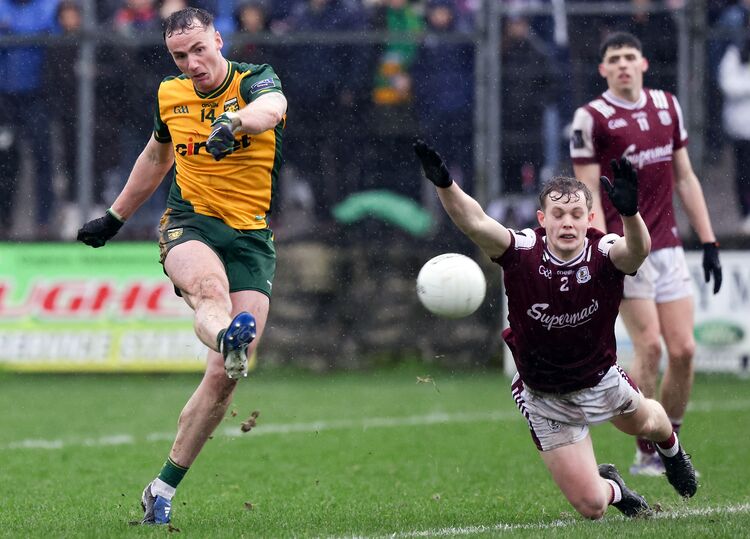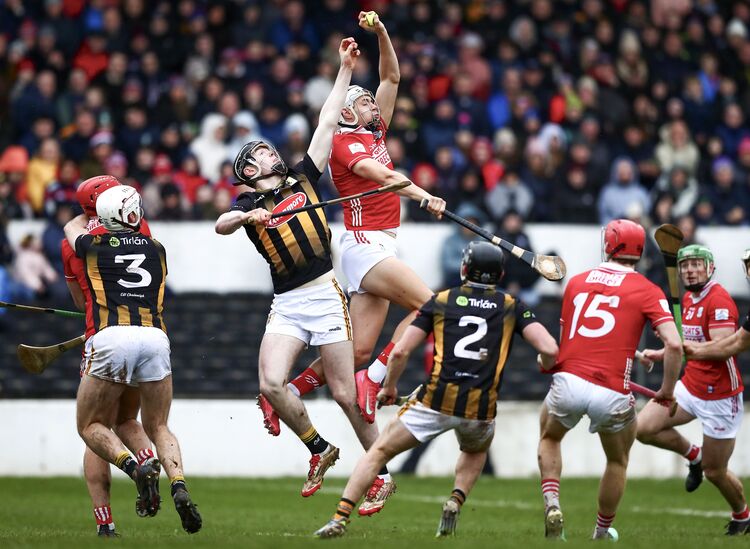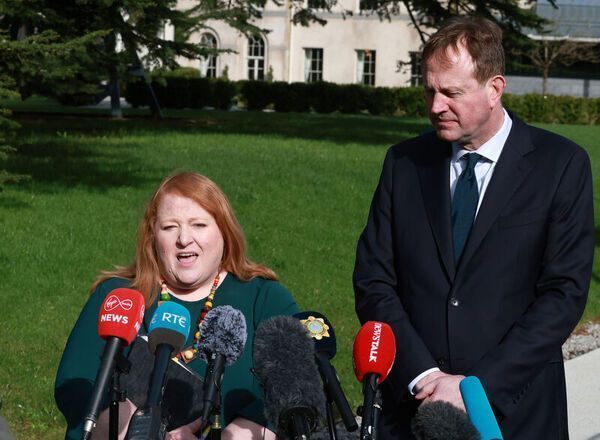By Daniel Neely
In his liner notes to the 1979 solo album “Father Charlie,” Mick Moloney wrote “There are many fine traditional Irish musicians in America. Few, if any, are more well known and universally liked and admired than Father Charlie Coen.” It’s a sentiment that rang true in 1979, and one that is no less relevant in 2015: indeed, you are not likely to find a person in Irish music more likable than Monsignor Charlie Coen.
Unless, that is, you’re finding other members of the Coen family. The Coens I’ve met have been wonderfully likable people, so getting a group of them together to record an album is likely to yield something special, which is exactly the case with the Coen family’s new album, “Around The Turf Fire At Coen’s” delivers. A family affair, “Turf Fire” brings Msgr. Charlie together with his brother Anthony, his sister Margaret, and their nephew Jimmy, to share tradition and memories over music. The end result is an album that gives keen insight into the Coen family and its regional tradition in a unique and compelling way.
The album came about a few years back when Anthony and Margaret were on a visit to New York. Catskills Irish Arts Week’s director Reidin O’Flynn (catskillsirishartsweek.com) suggested that the family might come together on a project and so the concept was born. What they’ve released here is a lovely cross section of recordings reflecting new and old east Galway, with some older recordings thrown into the mix that evoke Msgr. Charlie’s story.
Many readers will be familiar with Msgr. Charlie and would know him well. Born in Woodford, Galway, in 1934, Msgr. Charlie grew up around music. His own father Mike played concertina, while his brother Anthony learned fiddle and his brother Jack learned flute. Charlie came to America when he was 21, was ordained in 1968, and shortly thereafter landed in a parish in Staten Island, where he taught singing to a couple of groups of young people, the St. Paul’s Singers and the St. Joseph-St. Thomas Singers. During this time, he also deepened his musical ties with a who’s-who of New York legends, including his brother Jack, flute players Mike Preston, Mike Flynn, and Mike Rafferty, box players Sean McGlynn and Joe Madden, and fiddlers Paddy Reynolds and Larry Redican, among many others.
In the 1970s, Coen tried his hand in competition with great success. He took senior All-Ireland honors in concertina at the 1974 Fleadh Cheoil na hÉireann, a feat he replicated in 1976 and 1977. He also won senior tin whistle and flute slow airs honors in 1976 and the senior English Sean-Nós singing in 1978. This led to greater recognition: for example, he recorded the seminal “Branch Line” album with his brother Jack in 1976, toured the United States with Green Fields of America, and participated in the Smithsonian’s Festival of American Folklife. In 1979, he recorded a solo album “Father Charlie” for Green Linnet records.
But more than being simply an accomplished musician, Msgr. Coen is a community leader and for many, a mentor. The session and concert series he led when he was pastor of St. Christopher’s in Red Hook, NY, at the Rhinecliff Hotel in Rhinecliff, and then at the American Legion Post in Rhinebeck between 1988 and 2007 is the stuff of legend. There, he presented some of the greatest around, nurtured the Irish community and inspired a number of young people to learn about the music. Two of those people, Dan Gurney and Dylan Foley, are among the finest musicians in traditional music today. (Indeed, Gurney and Foley paid tribute to Msgr. Coen with their brilliant recent album “Irish Music from Hudson Valley.”)
Msgr. Coen’s leadership and his love of home & family are precisely what are communicated here, but they’re illustrated through an intriguing selection of material, especially if you’re familiar with Msgr. Charlie’s previous work. For example, while this album is bookended by the Irish and US national anthems (which is interesting in itself), they’re performed by the singing groups that Coen worked with on Staten Island, which also appear on his 1979 solo recording. Further, the family has re-recorded the wonderful “Mike Coen’s Polkas” that appeared on “The Branch Line” to lovely effect. And then there are two stunning vocal tracks from Msgr. Charlie – “An Clar Bog Deal” and “The Old Turf Fire” – that were recorded at the Rhinecliff Hotel some twenty years ago. They’re simply wonderful.
But the focus isn’t completely on Msgr. Charlie, nor should it be. Jimmy is a lovely accompanist who recommends himself throughout and who does a great job with a solo rendition of “Move in Decency/Flagstone of Memories.” Anthony, who won an All-Ireland with the Bridge Ceili Band in 1970, is featured on “Master McDermot / Donegal Reel,” and reveals himself as a player with great lift in his music. (He also sings a nice version of “The Galtee Mountain Boy.”) While Margaret doesn’t have a featured track, her contribution is felt throughout on the ensemble tracks.
Don’t go in listening for high polish because you won’t find it: as the title suggests, this album lacks the pretension of modernity and mirrors the intimacy of a family sitting around a quiet turf fire, as the title suggests. Ultimately, “Around The Turf Fire At Coen’s” is a beautiful, expressive album that will touch lovers of traditional music, especially those familiar with the Coen family and its music. It’s a remarkable (and recommended) bit of pure drop playing – do check it out! To purchase the CD, reach out to Msgr. Charlie directly at cpcoen@yahoo.com.










